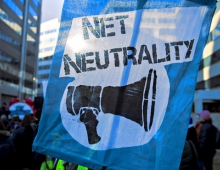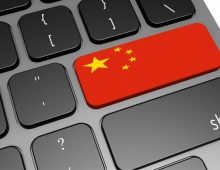
China to Lift Ban on Facebook Within Shanghai Free-trade Zone
Facebook, Twitter and other websites blocked by the Chinese government will be accessible in a planned free-trade zone (FTZ) in Shanghai, the South China Morning Post reported on Tuesday.
Citing government sources informed of the decision, the South China Morning Post reported that the authority in charge of the free-trade zone in Shanghai, the first such zone on the mainland, would also welcome bids from foreign telecommunications companies for licences to provide internet services within the new special economic zone.
China's ruling Communist Party aggressively censors the Internet, deleting online postings and blocking access to websites it deems inappropriate or politically sensitive.
Facebook and Twitter were blocked by Beijing in mid-2009. The New York Times has been blocked since reporting last year that the family of then-Premier Wen Jiabao had amassed a huge fortune.
China's three biggest telecommunications companies China Mobile, China Unicom and China Telecom, which are all state-owned enterprises, have already been informed of the decision to allow foreign companies to compete with them for business in the free-trade zone in Shanghai, the report added.
Beijing's decision to open up internet access only applies to the free-trade zone and not anywhere else in the country. The free-trade zone in Shanghai will span 28.78 square kilometres in the city?s Pudong New Area, including the Waigaoqiao duty-free zone, Yangshan deepwater port, and the international airport area.
The Chinese government hopes the free-trade zone will attract more foreign investment and liberalise the nation's foreign exchange and interest rate system, making capital flow much more easily.
China's ruling Communist Party aggressively censors the Internet, deleting online postings and blocking access to websites it deems inappropriate or politically sensitive.
Facebook and Twitter were blocked by Beijing in mid-2009. The New York Times has been blocked since reporting last year that the family of then-Premier Wen Jiabao had amassed a huge fortune.
China's three biggest telecommunications companies China Mobile, China Unicom and China Telecom, which are all state-owned enterprises, have already been informed of the decision to allow foreign companies to compete with them for business in the free-trade zone in Shanghai, the report added.
Beijing's decision to open up internet access only applies to the free-trade zone and not anywhere else in the country. The free-trade zone in Shanghai will span 28.78 square kilometres in the city?s Pudong New Area, including the Waigaoqiao duty-free zone, Yangshan deepwater port, and the international airport area.
The Chinese government hopes the free-trade zone will attract more foreign investment and liberalise the nation's foreign exchange and interest rate system, making capital flow much more easily.





















